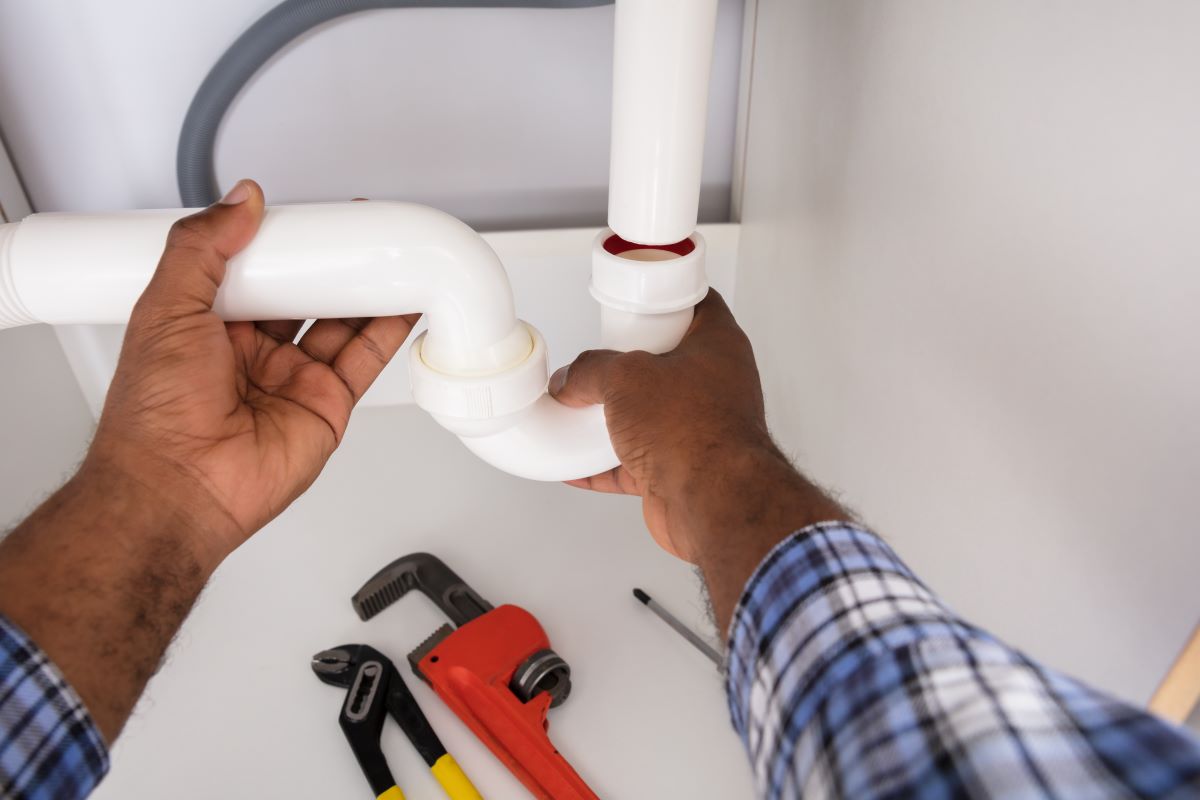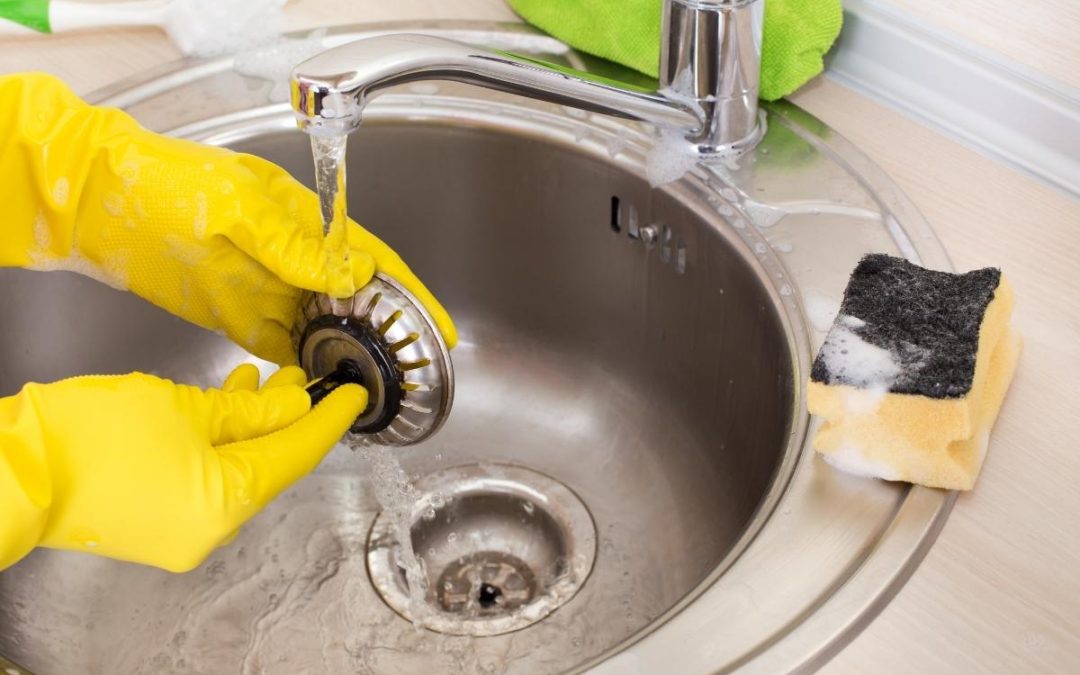Trusted Tips For Fixing A Slow-Draining Sink Fast
Trusted Tips For Fixing A Slow-Draining Sink Fast
Blog Article
What're your ideas regarding 4 Tips to Fix a Slow Draining Sink?

Introduction
We have actually all existed: You're brushing your teeth or washing your hands, and you notice the water pooling in the sink. Instead of swiftly swirling away, it lingers, transforming your once-refreshing morning regimen right into a small swamp scene. A slow-draining sink isn't just aggravating; it's typically an indicator of larger plumbing issues lurking underneath the surface area. The good news is that many slow-draining sinks can be taken care of with a little know-how, a few basic tools, and some persistence. Prepared to tackle this job head-on? Let's roll up our sleeves and dive right in.
Understanding the Reasons For a Slow-Draining Sink
Prior to you begin poking around in your pipes, it helps to know what could be creating the slowdown. Comprehending the root cause makes it easier to pick the right solution.
Typical Perpetrators Behind Slow Drainage
So, what's obstructing things up? Generally, it's a mixture of everyday particles-- assume hair, soap scum, tooth paste deposit, and leftover food fragments. With time, these tiny bits gather and cling to the pipe walls, gradually tightening the flow and making it harder for water to travel through. In many cases, natural resource from difficult water can likewise include in the crud, developing the best storm for persistent blockages.
When is it Time to Do Something About It?
If you discover the water draining pipes slower than normal, it's a good concept to intervene faster rather than later on. Waiting too long might lead to complete obstructions, undesirable odors, and even pipeline damages. If the water takes more than a few secs to clean out after shutting off the faucet, consider it a warning and prepare yourself to put on your DIY hat.
Devices and Products You'll Require
The right devices make all the distinction. Luckily, you will not require a totally equipped plumber's van to get the job done.
Vital Devices for Do It Yourself Fixes
A bettor is your best starting point. A little, sink-sized bettor produces suction that can displace small clogs. For more consistent blockages, a drain snake (in some cases called a plumber's auger) works wonders. A pair of handwear covers, a flashlight, and perhaps a set of safety goggles are likewise helpful.
Recommended Cleaning Solutions
Moderate recipe soap and warm water can aid break down greasy accumulation. A mix of baking soda and vinegar is a reliable home remedy, and chemical cleaners provide a more eco-friendly strategy. Keep chemical drain cleaners as a last option, as they can be severe on your pipes.
Safety And Security First: Precautions and Prep work
Prior to you launch into unclogging mode, consider safety. You're managing potentially dirty water and debris, so slip on a pair of gloves. If you're utilizing chemical cleansers, make sure the room is well-ventilated and adhere to the instructions on the label.
Protective Gear and Work Area Arrangement
Put down some old towels or cloths around the sink location to catch sprinkles. Eliminate any kind of items that might get in your way, like soap dispensers or toothbrush holders. Make sure you have excellent lights-- get a flashlight if required.
Step-by-Step Overview to Repairing a Slow-Draining Sink
Now, let's enter into the nitty-gritty. This detailed procedure will certainly assist you through basic methods to recover your sink's drain.
Action 1: Remove and Tidy the Stopper
Commonly, the stopper (that little plug you push down to block water) is the initial perpetrator. Remove it very carefully and clean off any type of hair or substance entraped around its base. Wash it thoroughly before putting it back in position.
Action 2: Make Use Of a Bettor to Remove Particles
Got that plunger ready? Placement it over the drainpipe and give it a couple of company pumps. The concept is to produce suction that can loosen any type of blockage. If you see littles particles floating up, you get on the right track.
Action 3: Attempt a Drainpipe Serpent or Cable Wall Mount
If the bettor does not suffice, it's time to draw out the drain snake. Carefully feed it into the drain and twist as you go. You may really feel some resistance-- that's likely the blockage. Maintain turning and drawing till you get rid of the blockage. If you do not have a drain snake, a corrected cable hanger can operate in a pinch.
Step 4: Use a Do It Yourself Drain Cleanser
An all-natural cleaner made from baking soft drink and vinegar can break down recurring crud. Pour half a cup of baking soft drink right into the drain, followed by half a cup of vinegar. Allow it fizz for about 15 minutes, after that flush with warm water. This chain reaction usually does marvels for small blockages.
Step 5: Reassemble and Evaluate the Sink
Put everything back with each other and run the faucet. Does the water now swirl down the drain at a commendable rate? If yes, provide yourself a pat on the back. If not, do not misery-- there are still a couple of more tricks up your sleeve.
Different Techniques for Stubborn Clogs
Not all blockages are produced equivalent. If your sink still refuses to cooperate, take into consideration these different services.
Sodium Bicarbonate and Vinegar Approach
We currently discussed this, yet it's worth noting again. This gentle, environment-friendly approach is safer than chemical cleansers and commonly rather reliable.
Enzymatic Drain Cleaners
Enzyme-based cleaners use natural microorganisms to absorb raw material. They're an exceptional choice if you're wanting to prevent harsh chemicals. Just remember, they might take a bit longer to work their magic.
Chemical Drain Cleansers: Benefits And Drawbacks
Chemical cleaners can blow up with challenging clogs quickly, yet they're not without disadvantages. They can create warm and fumes, damage pipes if used excessively, and posture environmental threats. Utilize them sparingly, and always comply with the instructions very carefully.
Safety Nets to Maintain Your Sink Flowing
Prevention is the best remedy. By taking on a couple of simple routines, you can maintain your sink from decreasing in the first place.
Regular Cleaning Practices
Wipe down the sink container and component location on a regular basis. Eliminate hair or food fragments before they have an opportunity to wash down the drain.
Preventing Harmful Compounds Away
Reconsider before unloading coffee premises, grease, or fibrous vegetable scraps down the sink. These wrongdoers cling to pipeline wall surfaces, creating blockages gradually.
Regular Upkeep Checks
Arrange a quick monthly evaluation. Run hot water with the sink for a couple of mins, focusing on the circulation. If it appears sluggish, act fast before it ends up being a full-on clog.
When to Call a Specialist Plumbing Professional
Sometimes, despite just how tough you try, that obstruct simply will not budge. That's when it's time to generate the pros.
Indicators That Indicate an Extra Severe Issue
If your sink drains pipes slowly regardless of several attempts, or if you notice water supporting in various other fixtures (like your shower or commode), you might have a much more serious plumbing issue prowling much deeper in the system.
Stabilizing Do It Yourself Initiatives with Specialist Aid
While do it yourself can save you cash and supply a sense of success, there's no pity in calling an expert. A specialist plumber can analyze your entire pipes arrangement, making sure there's no underlying damages or long-lasting problem that could cost you much more down the road.
Comparing Prices and Long-Term Solutions
Prior to deciding, consider the big picture. An economical, quick fix might fix the trouble temporarily, however buying a more long-term option can save you money and stress and anxiety in the future.
Evaluating the Expenses of Do It Yourself vs. Specialist Fixes
Do it yourself repairs commonly cost little bit more than the cost of a plunger or a container of baking soda. Professional services, on the other hand, come with a price tag yet might protect against repetitive problems and expensive repair services later.
Buying High Quality Fixtures and Upgrades
If your sink's style contributes to regular clogs, it might be worth upgrading to higher-quality components or modifying the pipes design. Consider this a financial investment in your house's functionality and convenience.
Verdict
A slow-draining sink can seem like a small irritability, but it's commonly an indication that your pipes needs a little TLC. By understanding the source, using the right devices and strategies, and committing to easy preventive measures, you can keep your sink moving openly. And when all else fails, never be reluctant to contact a specialist-- your home's pipes deserves the financial investment in care and maintenance.
Three Common Ways to Fix a Slow Drain
Baking Soda Method
Boil a full pot of water. Measure out cup of baking soda and pour it down the drain. Then take cup of the magical cleansing substance known as white vinegar and drop that down there too. Allow the mixture to fizz in the drain for five minutes as the vinegar and baking soda combine. Now dump in that whole pot of boiling water. This combination of cleaning substances should clear out anything that is causing your sink to drain slowly. If it doesn t...
Zip-It
If the baking soda method doesn t clear out your drain, it may be because a significant amount of hair and/or other debris has collected there and you need to remove it. Purchase a Zip-It tool at any home improvement or hardware store and insert it into your drain. It will catch any collected hair or debris that s blocking the flow of water. Pull it out. If it s got a big clump of hair, etc. on the end, you ve probably got your culprit.
Drain Cleaner
If these methods don t work, there is the standard drain cleaner that you can also buy in a hardware store or even your local grocery store. It s better if you can use a household solution, but these drain cleaners often work in a pinch. They re very simple to use. You generally just dump them in your drain and wait. If even this method is not effective, it may be time to call the plumber.
https://www.mrrooter.com/oneida/about-us/blog/2017/july/three-common-ways-to-fix-a-slow-drain/

As a fervent reader on Solved! How to Fix a Slow Sink Drain, I figured sharing that piece of content was a smart idea. You should pause to distribute this entry if you enjoyed it. Thanks a lot for being here. Don't forget to check up our website back soon.
Schedule Your Job Now Report this page